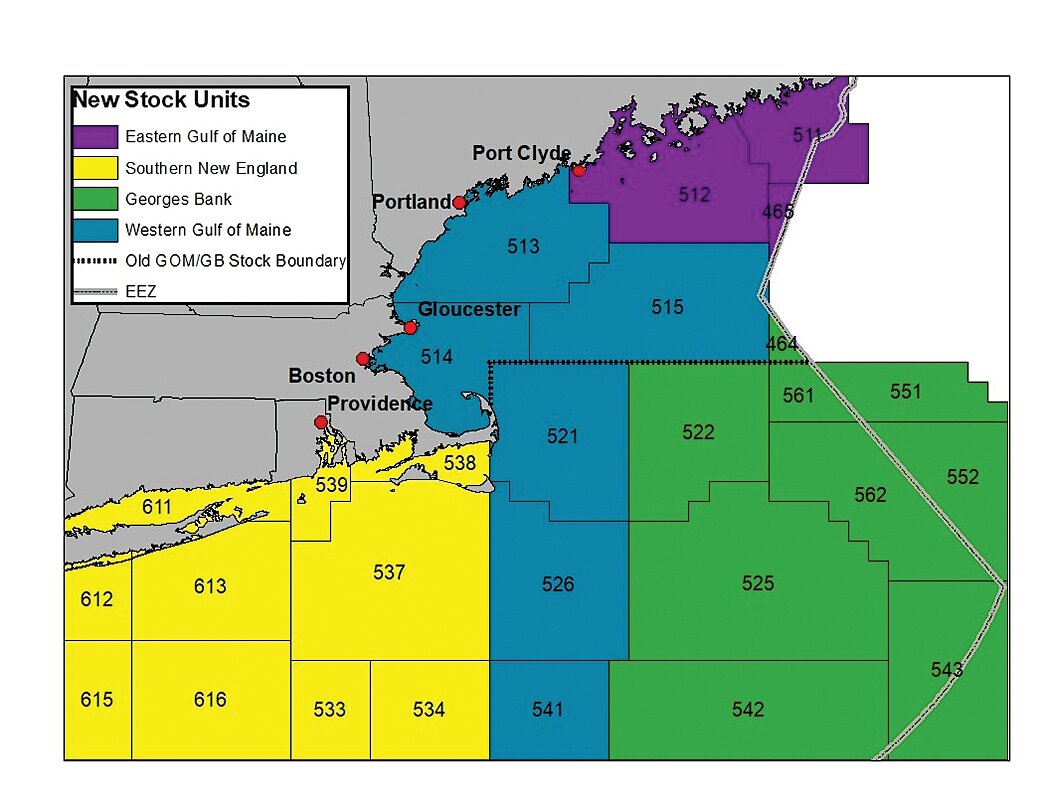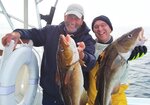- WEDNESDAY, MAY 15, 2024
Workshop outlines wind farm’s cable path
The Better Bay Alliance held a public workshop on April 25 with Ørsted and their Revolution Wind project, which is being built this year along with a cable installation in the West Passage of Narragansett Bay. About 40 people attended the workshop at Innovate Newport.
Dave Lussier, president of The Better Bay Alliance, a non-profit organization dedicated to enhancing boating safety in Rhode Island waters, underscored the significance of proactive communication with the public regarding upcoming operations that could affect boating safety, including the installation of the wind farm and cabling in Narragansett Bay.
Lussier said, “The Better Bay Alliance is not in any partnership with Ørsted, and we are not an endorsing or supporting organization, but rather simply an interested party that wants the boating public to fully understand what their plans are so that boating safety in our waters remains a priority for all users of our waterways.”
In response to the need for information, The Better Bay Alliance has developed a LIVE CHART product. This tool illustrates specific areas and schedules for the cable laying process, ensuring that stakeholders remain informed. Additionally, the organization disseminates news about various events and activities on the water.
LIVE CHART is free and easily accessible on the BBA website: www.betterbayalliance.org .
Annual spring trawl survey
The Massachusetts Division of Marine Fisheries (DMF) will be conducting its annual spring trawl survey throughout state coastal waters beginning May 6, 2024. Surveys have been conducted each May and September since 1978 to provide a consistent sampling of benthic fishes and mobile invertebrates.
Survey data is used to monitor the condition of various marine stocks. The data is also used to inform the environmental review process, which advises on ways to minimize construction impacts on fisheries resources.
Will new cod measures rebuild the stock?
The New England Fishery Management Council (the Council) will host three in-person public workshops to identify challenges and begin discussing ideas for how to address Atlantic cod management considering that Atlantic cod will now be assessed as four biological stock units instead of two.
The Council used to receive stock assessments for Gulf of Maine cod and Georges Bank cod. It now will receive stock assessments for: (1) Western Gulf of Maine cod; (2) Georges Bank cod under new stock boundaries; (3) Eastern Gulf of Maine cod; and (4) Southern New England cod. As a result, the Council must deal with these new biological stock units on a management level.
The three workshops will offer fishermen and other stakeholders an opportunity to weigh in before the Council begins formulating alternatives under Phase 2 of the Atlantic Cod Management Transition Plan (for details on plans and to register for below workshops visit Atlantic Cod Management Transition Plan - Library - NEFMC). All workshops start at 9:30 a.m. and run until 4 p.m. Workshops are being offered in Portland, Maine, Tuesday, April 30, 2024, at the Westin Hotel; 157 High St., Wakefield, Mass., Wednesday, May 1, 2024, at the Four Points The Sheraton, One Audubon Road; and South Kingstown, Rhode Island, Thursday, May 2, 2024, at the Hampton Inn, 20 Hotel Drive.
“Atlantic cod stocks in our region have declined dramatically. They are overfished and continue to be subject to overfishing,” said NOAA Fisheries. In a 2020 petition to end overfishing and rebuild Atlantic Cod, the Conservation Law Foundation related: “In 30 years since NMFS was first ordered by a federal court to prevent overfishing of Atlantic cod, NMFS has approved 16 amendments to the Northeast Multispecies Fishery Management Plan and 53 framework adjustments, none of which has actually prevented overfishing.”
Let us hope dividing the cod into four distinct biological stocks with separate spawning grounds helps to preserve spawning grounds so we enhance our ability to rebuild cod rather than giving New England another excuse to continue overfishing Atlantic Cod
Attend a cod workshop and be heard, let us aim to prevent overfishing and rebuild the stock rather than just being granted a license to take more fish.
Where’s the bite?
Freshwater fishing: Fishing for trout continues to remain strong at stocked ponds. For a list of stocked ponds, and in Rhode Island visit Designated Trout Waters | Rhode Island Department of Environmental Management (ri.gov), in Massachusetts visit Freshwater Fishing | Mass.gov. Fishing for largemouth bass continues to improve as we swing into the prespawning season as fish begin to stage in warmer shallow water.
Striped bass
Matt Conti of Snug Harbor Marina, South Kingstown, said, “We have some migration bass with lice, but things should really break open this week with warmer temperatures.” Declan O’Donnell of Breachway Bait & Tackle, Charlestown, said, “We had fish stripers up to 25 inches long taken at the Breachway this week. More than a few very small school bass were caught as well, mostly in the white wash at your feet. The large numbers have not yet materialized, but they could at any tide. We have luck with white lures in the spring 1 1/2 once bucktails, 5” storm shad, Cotton Cordell bone pencil popper, and Yo-Zuri hydro twitch bait as some of the lures that have been effective.”
Tautog
Matt Conti of Snug Harbor Marina, said, “The tautog bite has been good. Fishing for anglers is improving along the coastal shore and at the jetties.”
Angler John Migliori, who fished Aquidneck Island for tautog from shore Sunday, said, “I sure did recognize the nice bite when it hit and I reacted just in time to set the hook, and knew right away that I had a good fish on. But surely was surprised how big it really was when I landed it — 21 Inches and 6.52 pounds.”
Declan O’Donnell of Breachway Bait & Tackle, said, “In the spring, tautog females migrate along the coast to spawn, typically depositing their eggs in mussel beds. Tautog fluctuate with the seasons to maintain their ideal temperature range of 50 to 68 degrees. In the spring, this pulls the fish into the shallows for spawning and feeding, and in the winter, it pushes them back down to depths of 40 feet or more. This time of year, crabs, sandworms, and clams make good tautog bait.”
Dave Monti holds a master captain’s license and charter fishing license. He serves on a variety of boards and commissions and has a consulting business focusing on clean oceans, habitat preservation, conservation, renewable energy, and fisheries related issues and clients. Forward fishing news and photos to dmontifish@verison.net or visit www.noflukefishing.com.
Other items that may interest you











